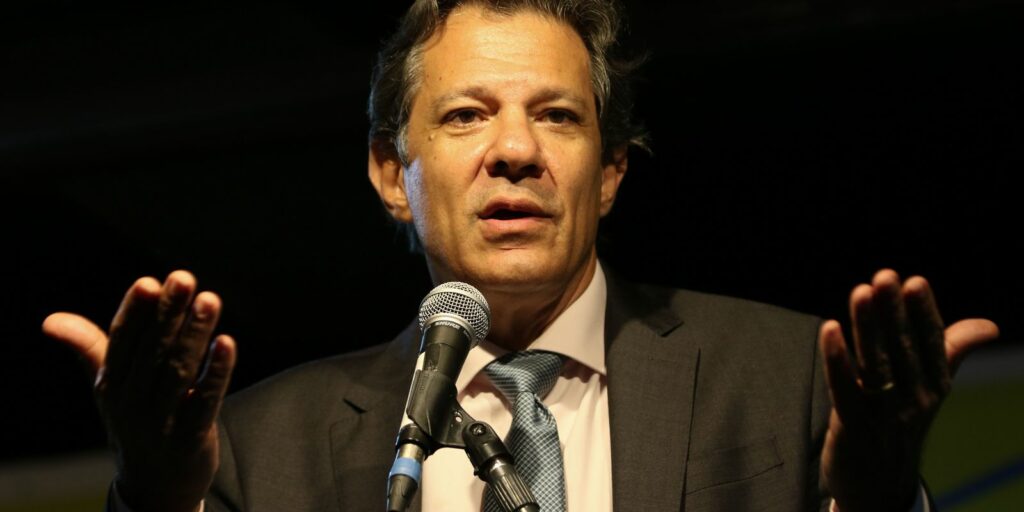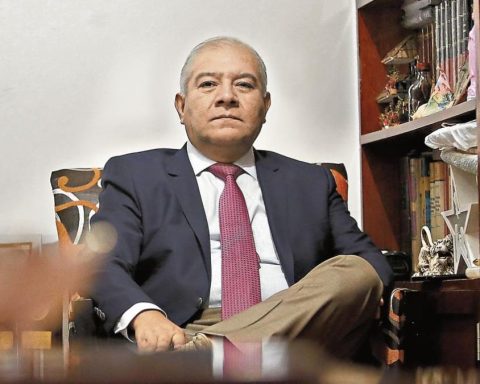President Alberto Fernández summoned the governors for this Thursday after the ruling of the Supreme Court of Justice that orders the National Government to pay the City of Buenos Aires 2.95% of the mass of co-participating taxesinstead of the 2.32% that he was currently paying.
The appointment is scheduled for 12 at Casa Rosada, official sources informed Télam.
The Head of State referred to the ruling of the Court in an act that led in Formosa together with the governor of that province, Gildo Insfrán.
“It is a fateful day for federalism due to this tremendous ruling that the Court has issued, which generates enormous inequality between the most opulent city in the country and the rest of the country,” the president summarized the judicial measure.
The rejection of the governors
The Court ruling was rejected by different governors, including insfranwho warned during the ceremony with the President that the court’s measure is “unfair” and “shredded federalism.”
“Today an unfair ruling came out that shatters federalism and the head of the City of Buenos Aires (Horacio Rodríguez Larreta) comes out saying that it is a historic ruling for Argentina, a lie,” emphasized the governor of Formosa.
In this sense, he considered that “this is the most flagrant demonstration of Buenos Aires centralism endorsed by a Court that does not know how to act to prevent the management of a national, popular, humanist and deeply Christian government.”
Meanwhile, the governor of Santiago del Estero, who chairs the group of leaders of the Norte Grande, Gerardo Zamorawho wrote on Twitter that “the CSJN made a million-dollar ruling. The rationale? Read the Buenos Aires press: ‘Larreta’s strong political triumph’ there are no more analyzes!”
And he wondered: “Federalism? pulverized, the richest city simply mocks!; The Republic? without validity to the powers of Congress… a precautionary measure and that’s it!!”.
The Governor of Santa Cruz, Alice Kirchnerconsidered that the ruling of the Supreme Court of Justice in favor of the City of Buenos Aires in the percentage of reallocation of co-participating funds “breaks federalism”, in the framework of a legal dispute between the Government of Horacio Rodríguez Larreta and the Government national.
“A ruling by the Supreme Court of Justice destroys the limits between the powers, breaking federalism,” the Santa Cruz president assessed in a post on her Twitter account and defined the resolution of the highest court as “a gloomy day for our Republic.”
For Alicia Kirchner, the ruling represents “an authoritarian bias that our country should not revive” and added: “Once again the balance is unbalanced.”
For his part, the governor of La Rioja, Ricardo Quintelapointed out that “the ruling of the Supreme Court in favor of CABA in the claim for co-participation goes against federalism and is unconstitutional since the Federal Capital is not a province.”
And he argued that “ruling in favor of Larreta means less resources for the provinces and more resources for the richest city in Argentina that does not produce any good, it only provides economic, gastronomic and hotel services.”
“We need a real federalism with resources so that all the provinces can continue to develop our places for the well-being of the people,” the Riojan president completed on the same social network.
The governor of Catamarca, Raúl Jalil, expressed that “the CSJN ruling on the return of funds to CABA represents a blow to federalism.”
“The governors were not listened to and the powers of the National Congress were unknown, in a clear conflict of powers. Federalism is the pillar of this Nation,” he completed.
The Governor of Chubut, Mariano Arcioniconsidered that the ruling of the Supreme Court in favor of the city of Buenos Aires for co-participating funds “attempts against federalism” and called to “continue promoting a distribution of national funds that provide the same opportunities” for everyone.
“The city of Buenos Aires achieved the points of co-participation that it wanted, attacking the bases of federalism, the equitable and fair development of Argentines and Argentines. This occurred from the favorable ruling of the Court,” Arcioni affirmed through your Twitter account.
For the Chubut president, “the transfer of resources to the richest city in the country generates asymmetry in the distribution of resources and inequalities against the provinces of the interior of our country.”
In turn, the governor of La Pampa, Sergio Ziliottoconsidered that the ruling of the Court “tramples on the federalism enshrined in the National Constitution”, and affirmed that the highest court “defends” thus a “unitary, unfair country model and for few”.
“It is a ruling that tramples on federalism enshrined in the National Constitution,” Ziliotto said from his Twitter account and said that “it annuls a law and gives CABA resources that the federal government distributes throughout the interior.”
It is about a Supreme Court that “defends a model of a unitary, unfair country and for a few,” he added.
The Supreme Court of Justice ordered the national government to pay the city of Buenos Aires 2.95% of the mass of co-participating taxes, within the framework of the dispute between both administrations for the correct percentage.


















